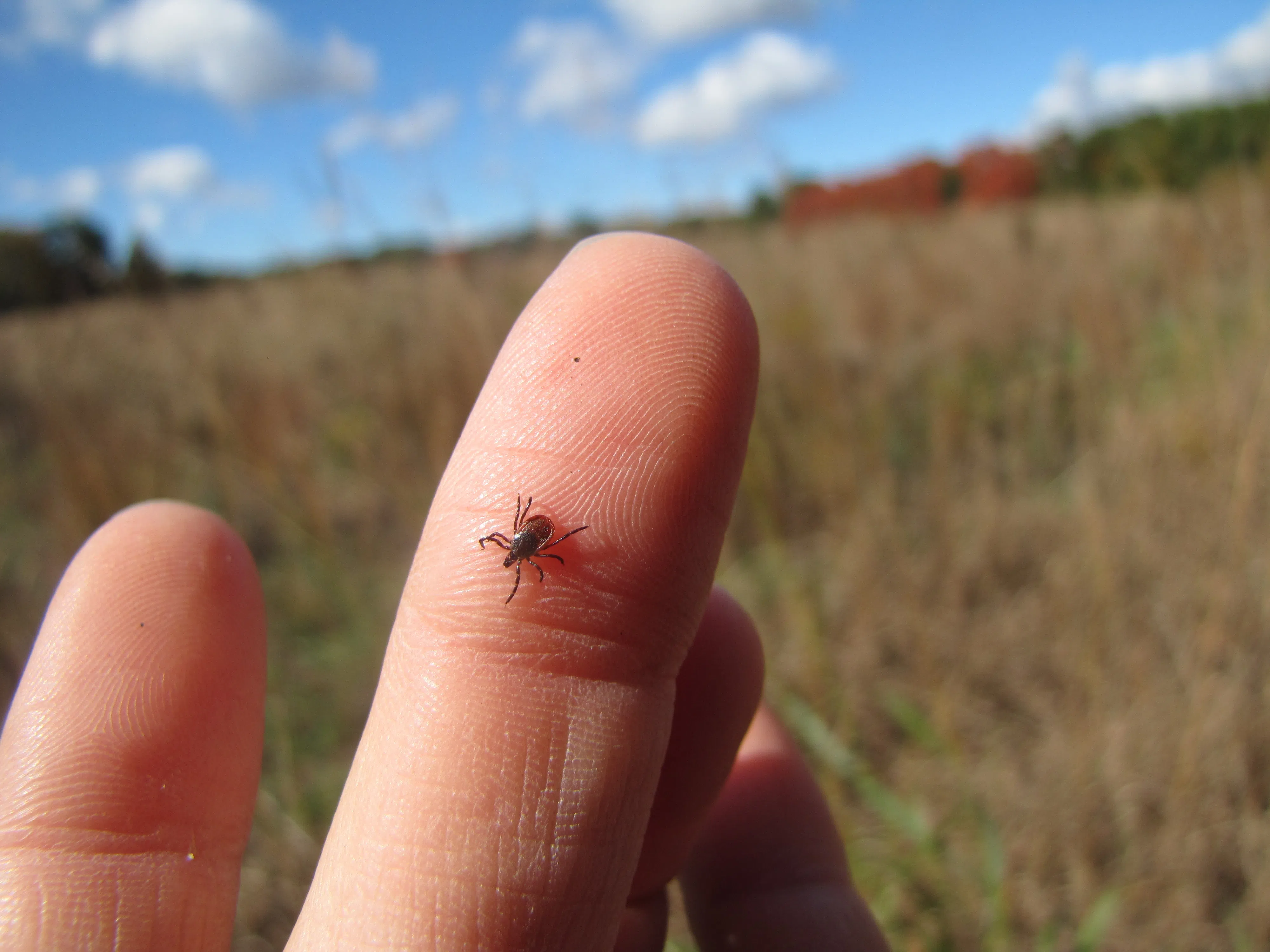
Deer Tick - Photo courtesy Nature Conservancy of Canada
Tick season is upon us.
The provincial government is encouraging residents to take precautions to prevent tick bites and reduce the risk of contracting Lyme disease and other tick-borne diseases, while outdoors.
“As we start enjoying the warmer weather again, it is important that we all take steps to protect ourselves and loved ones from tick bites and tick-borne diseases,” said Sylvia Jones, Deputy Premier and Minister of Health. “Blacklegged ticks are continuing to spread to new areas of the province, but by being proactive, we can combat the risk they pose and safely enjoy the beauty of Ontario over the coming months.”
Lyme disease and other tick-borne diseases can cause potentially serious infections if you’re bitten by an infected blacklegged tick also known as deer tick.
If you have any symptoms such as fever, headache, chills, muscle and joint pain, fatigue and an expanding circular rash that resembles a bulls-eye, consult a healthcare provider as soon as possible.
You are at risk of exposure to ticks anytime you are outside in a wooded area or near tall grass or bushes.
“As areas where ticks can be found continue to grow, so to, do the risks of tick bites and tick-borne diseases,” said Chief Medical Officer of Health, Dr. Kieran Moore. “By being vigilant, wearing appropriate clothing and doing routine tick checks, we can avoid tick bites and ensure our trips outside are safe and healthy, in the months ahead.”
The following are a few tips to help protect yourself from tick bites:
- Wearing light-coloured clothing, so it’s easier to spot ticks.
- Wear long-sleeved shirts, long pants tucked into your socks, closed-toed shoes, or any special clothing designed to repel ticks.
- Apply insect repellent containing DEET or icaridin on your exposed skin and your clothes.
- Check yourself, your children, and your pets for ticks after being outdoors. Any ticks found should be removed promptly.
- Putting your clothes on high heat in a dryer for at least 10 minutes before washing them, after spending time outdoors.
Ticks are small and can be hard to see or notice. If you have been bitten by a tick you should remove it as soon as possible. Use fine-tipped tweezers to grasp the tick as close to your skin as possible without crushing it (further information on removing ticks can be found here).
Once you have removed a tick, wash your skin with soap and water and then disinfect your skin and your hands with rubbing alcohol or an iodine swab.
After you remove the tick you should call or check the health unit website to get advice on how to identify the tick.
If you have any health concerns after a tick bite, consult a healthcare provider as soon as possible.
Most cases of Lyme disease can be treated successfully with antibiotics, and pharmacists have been able to prescribe medication to treat tick bites to prevent Lyme disease since January 1, 2023.




